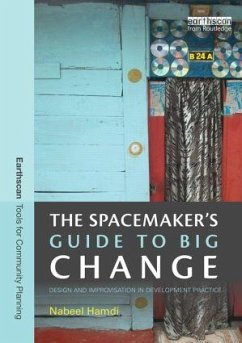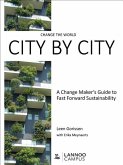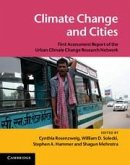This book gives definition to participatory practice as a necessary form of activism in development planning for cities.¿ It gives guidance on how practice can make space for big and lasting change and for new opportunities to be discovered. It points to ways of building synergy and negotiating our way in the social and political spaces 'in between' conventional and often competing ideals - public and private interests, top down and bottom up, formal and informal, the global agendas which outsiders promote and the local needs of insiders, for example. It offers guidance on process, designed to close gaps and converge worlds which we know have become divisive and discriminatory, working from the detail of everyday life in search of beginnings that count, building out and making meaningful locally, the abstractions of the global causes we champion - poverty alleviation, environmental sustainability, resilience. Practice - the collective process by which decisions are negotiated, plans designed and actions taken in response to needs and aspirations, locally and globally - we will see, is not just about being practical, but more. Its purpose is to give structure to our understanding of the order and disorder in our cities today, then to disturb that order when it has become inefficient or inequitable, even change it. It is to add moral value to morally questionable planning practice and so build "a social economy for the satisfaction of human need." Practice in these spaces 'in-between' redraws the boundaries of expectation of disciplinary work and offers a new high ground of moral purpose from which to be more creative, more integrated, more relevant, more resourceful - more strategic.
Hinweis: Dieser Artikel kann nur an eine deutsche Lieferadresse ausgeliefert werden.
Hinweis: Dieser Artikel kann nur an eine deutsche Lieferadresse ausgeliefert werden.








